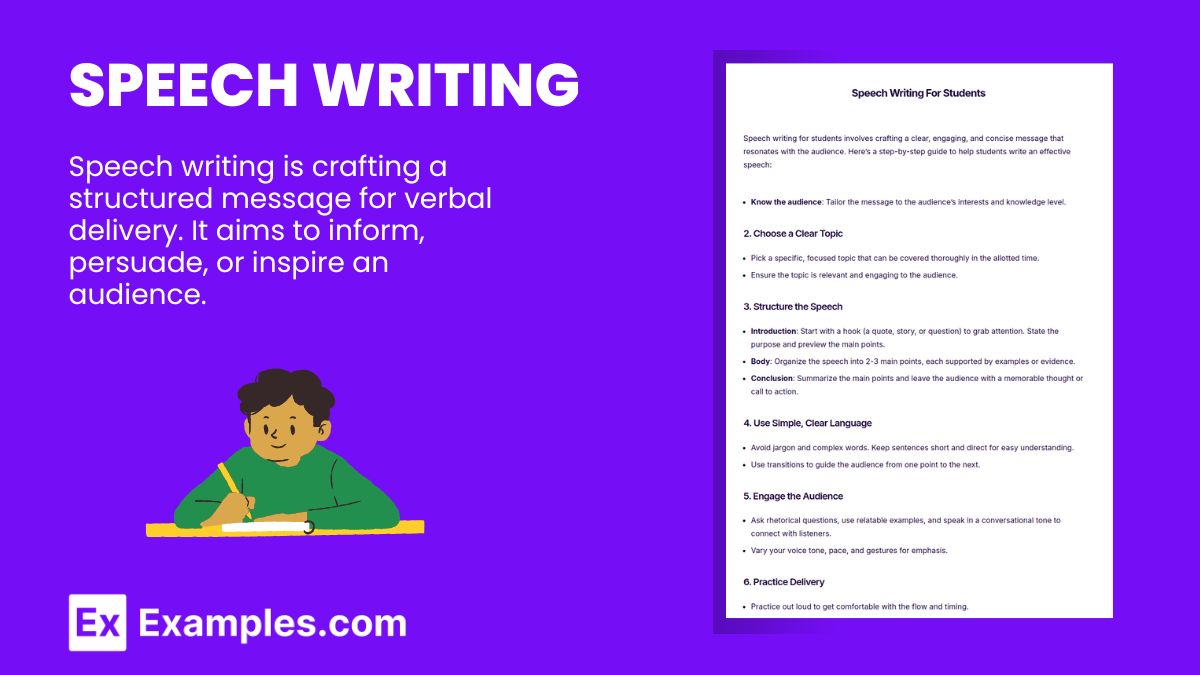15+ Speech Writing Examples to Download
Writing a speech is very different from writing an article, brief, or proposal. Speaking and writing are distinctive versions of the same language, unique in their output, syntax, and function. Presenters and trainers need to appreciate the differences.
What is Speech Writing?
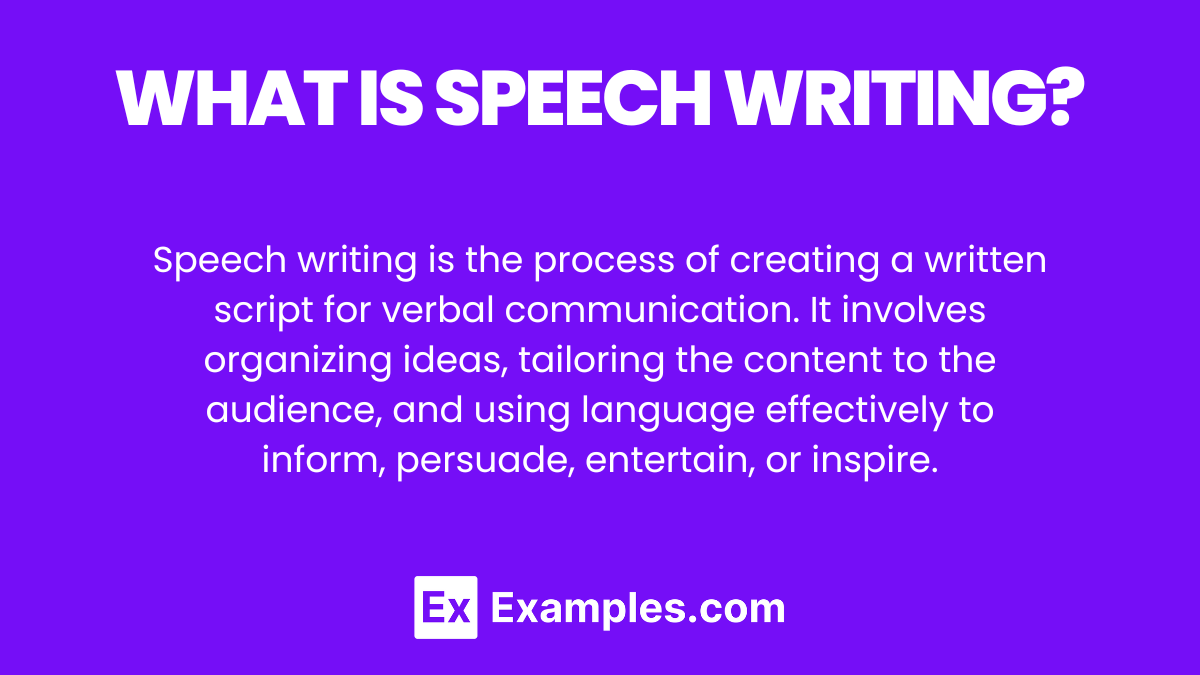
Speech Writing Bundle
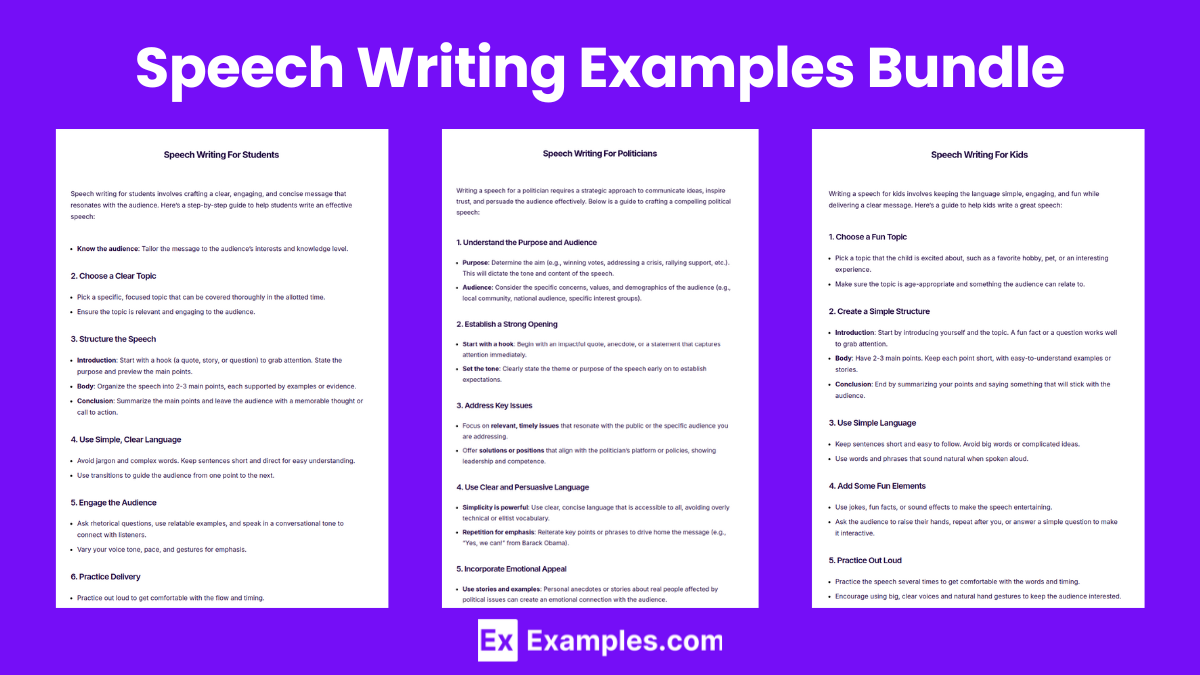
Download Speech Writing Bundle
Speech Writing Format
Opening Remarks
Greeting: Begin with a warm and respectful greeting.
Introduction
Purpose: Briefly state the purpose of your speech.
Acknowledgments
Event Organizers
Recognition: Thank the main organizers and planners.
Speakers and PresentersAppreciation: Acknowledge the contributions of speakers, presenters, and performers.
Special GuestsGratitude: Show appreciation to any special guests or dignitaries.
Participants and AttendeesAcknowledgment: Thank the audience for their participation and attention.
Support StaffAppreciation: Recognize the efforts of the support staff and volunteers.
Closing Remarks
Summarize: Briefly recap the key points of gratitude.
Final Thanks: Offer a final word of thanks.
Farewell
Speech Writing Example
Short Speech Writing Example
Good morning, everyone.
I stand here today to express my deep gratitude to all who have played a role in making this event possible. Your dedication and hard work are truly appreciated.
First, I want to thank the event organizers for their careful planning and attention to detail. Without you, none of this would have come together. To the speakers and presenters, your insights have added great value to today’s event, and we are grateful for your time and contributions.
A big thank you to our attendees. Your presence here is what makes this event meaningful, and we appreciate your time and attention.
In closing, I extend my heartfelt thanks to all. Let’s carry forward the spirit of this event into our daily lives. Thank you, and have a wonderful day ahead.
Speech Writing For Students
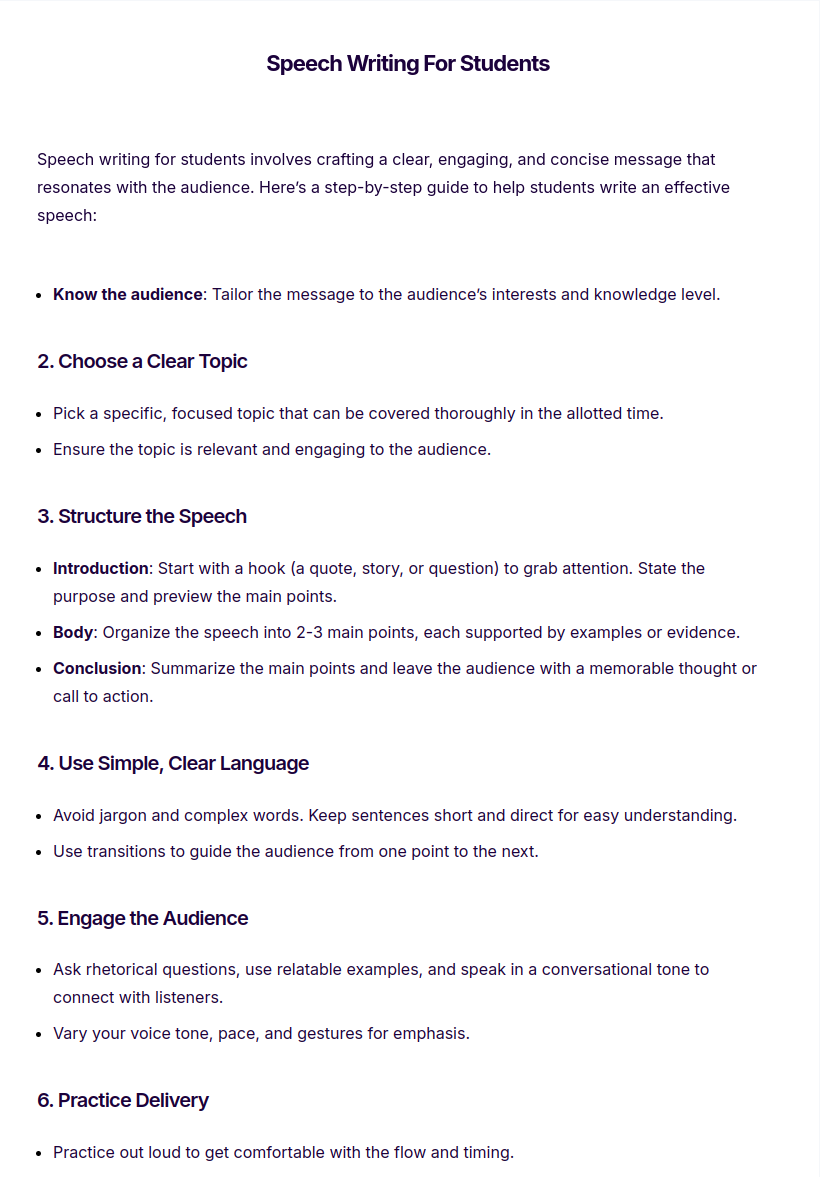
Speech Writing For Politicians
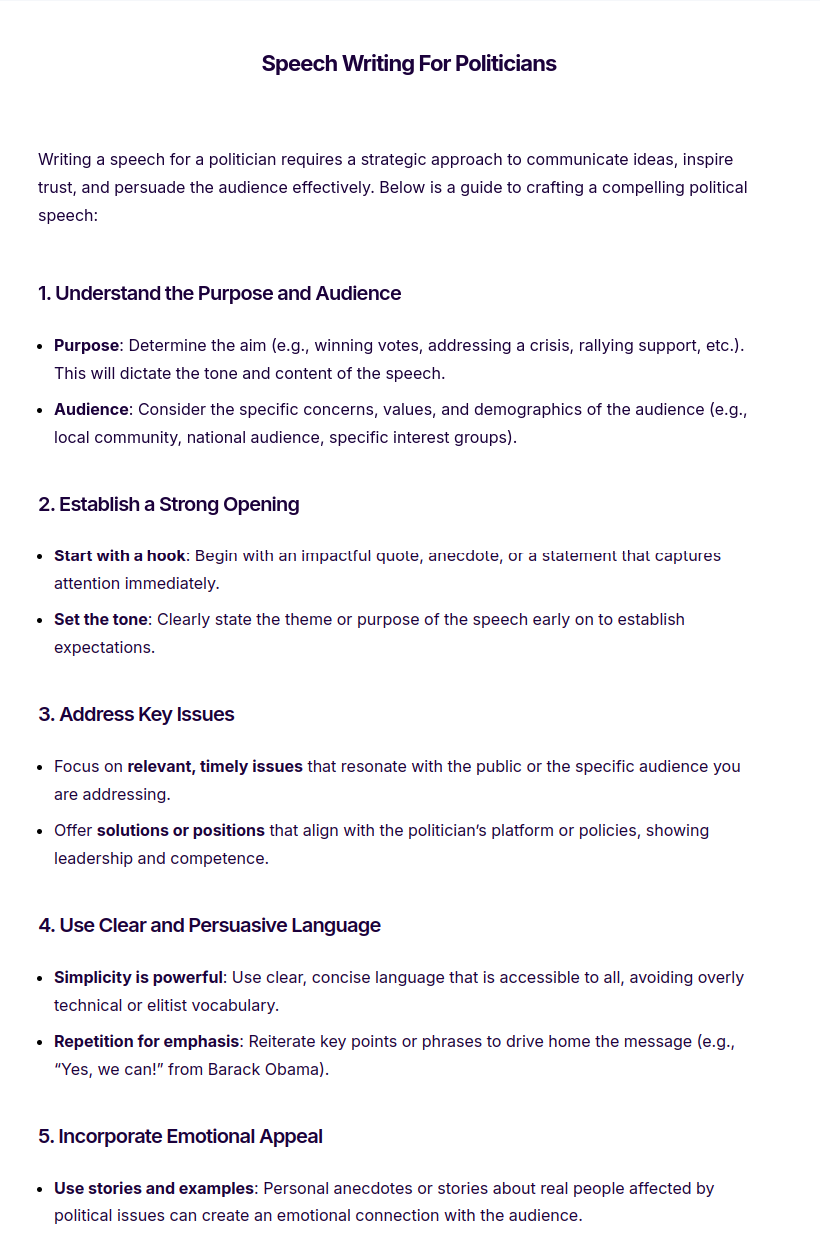
Speech Writing For Kids
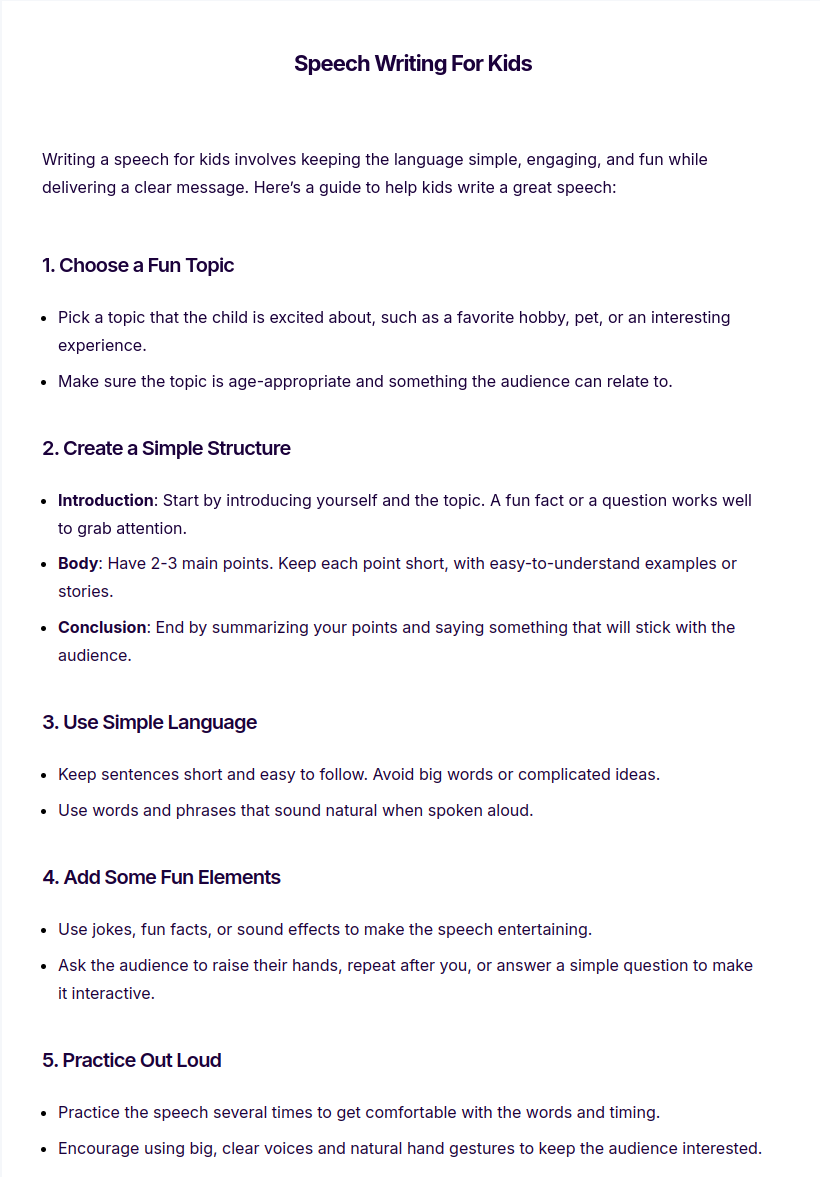
More Speech Writing Examples and Samples
Barack Obama Race Speech Example
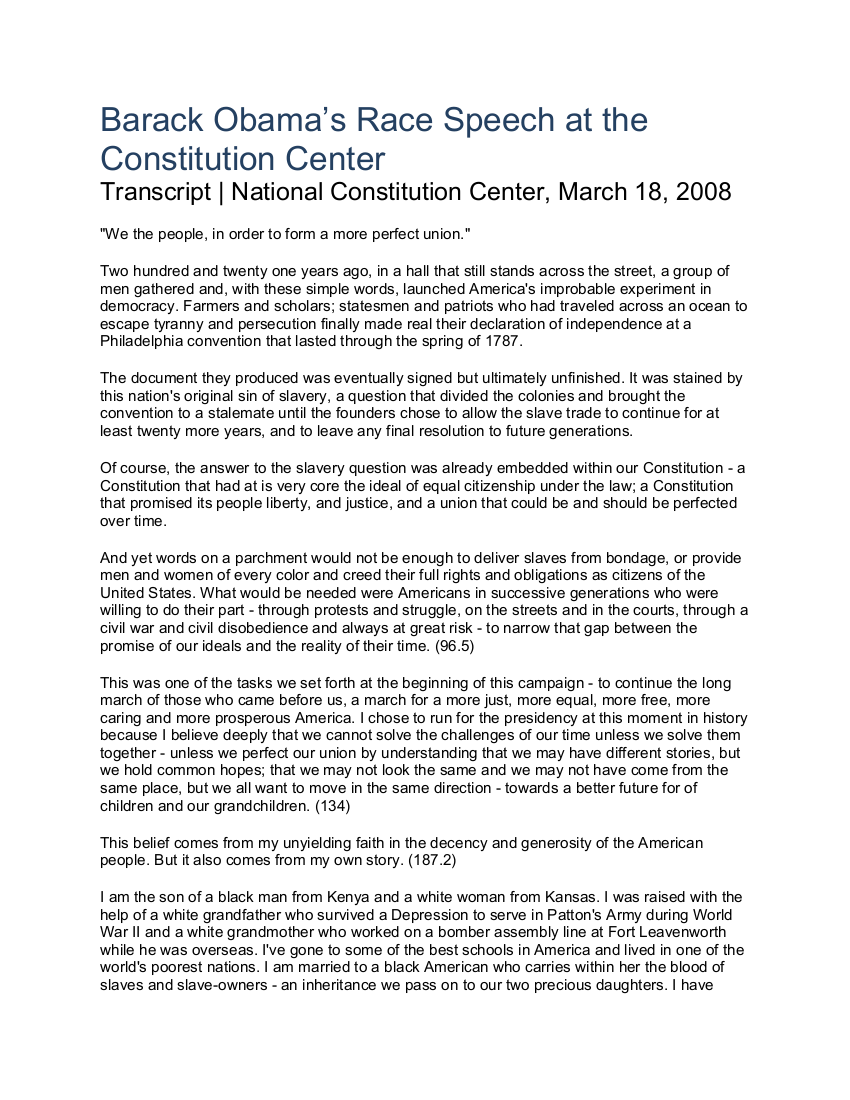
House Divided Speech Example
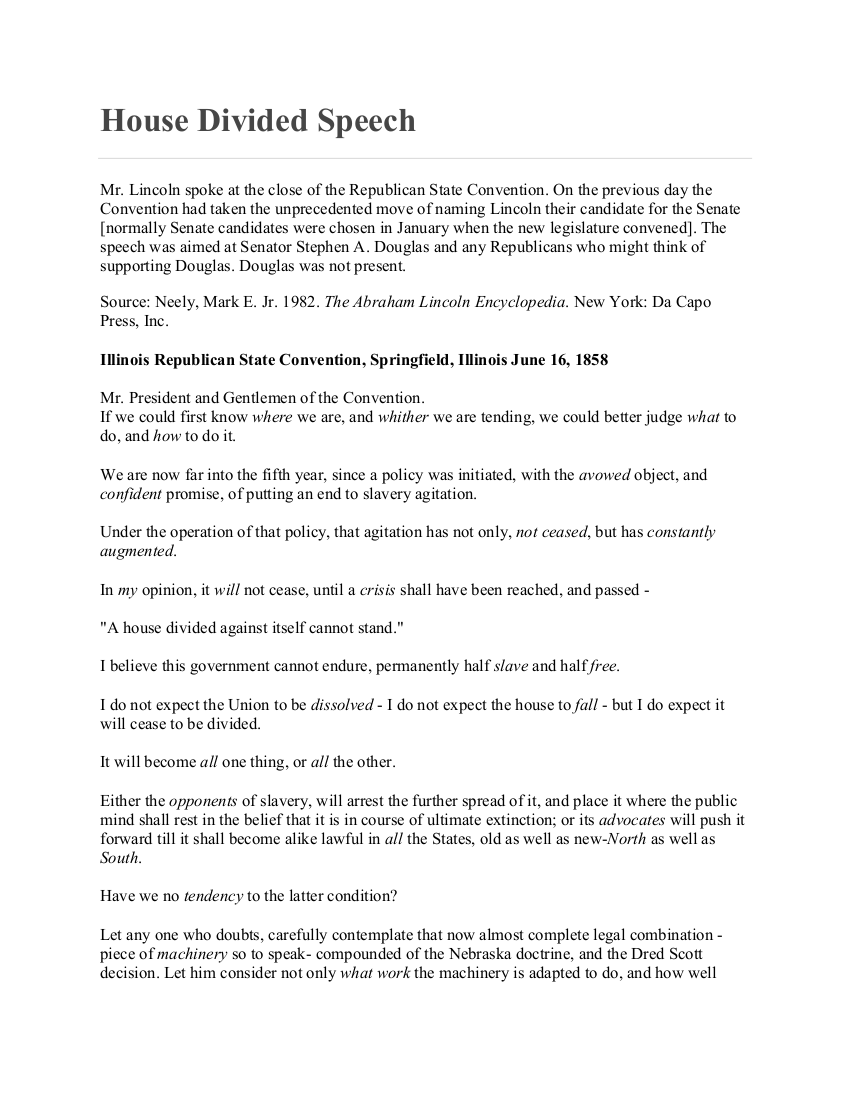
Sample Speech Example
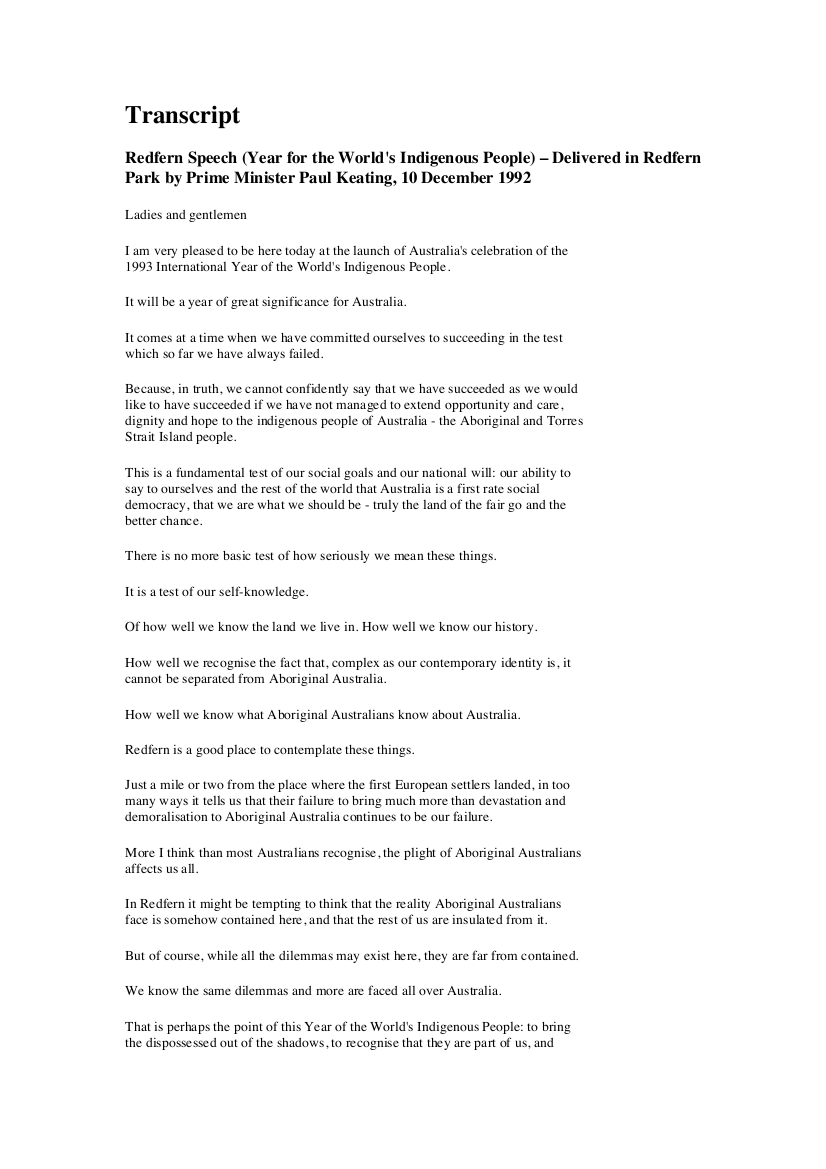
How to Write Speech Writing?
Writing an effective speech involves several key steps to ensure it engages the audience and delivers the message clearly. Here’s a concise guide:
Understand Your Audience
Know who you are speaking to (age, interests, knowledge level).
Tailor your tone, language, and examples to fit their background.Define the Purpose
Determine the main goal (inform, persuade, entertain).
Keep the message clear and focused.Create a Strong Opening
Start with an attention-grabber (a quote, question, or anecdote).
Introduce your topic and its relevance.Organize Your Speech
Use a clear structure: Introduction, Body, Conclusion.
Stick to 3-4 key points and support them with examples or data.Engage with the Audience
Use rhetorical devices (repetition, alliteration, metaphor).
Ask rhetorical questions and involve the audience emotionally.Use Simple, Clear Language
Avoid jargon and complex sentences.
Speak conversationally to maintain interest.Craft a Memorable Conclusion
Reinforce your main points.
End with a strong closing statement (call to action, memorable quote).Practice Delivery
Practice aloud to work on tone, pauses, and pacing.
Rehearse in front of others for feedback.
Principles of Speech Writing
Here are the key principles of speech writing that can help in crafting an effective and impactful speech:
1. Understand Your Audience
- Tailor your speech based on the audience’s interests, knowledge, and expectations.
- Consider their demographic, profession, and cultural background.
2. Define Your Purpose
- Know the primary goal of your speech (e.g., to inform, persuade, entertain, or inspire).
- Every part of the speech should support this purpose.
3. Create a Clear Structure
- Introduction: Start with a hook (e.g., a question, quote, or story) to capture attention and state your purpose.
- Body: Organize the main points logically, ensuring smooth transitions between ideas.
- Conclusion: Summarize the key points and end with a strong closing statement to leave a lasting impact.
4. Focus on Key Messages
- Avoid overloading the audience with too much information.
- Emphasize a few strong, memorable points that align with your purpose.
5. Use Simple and Clear Language
- Avoid jargon or overly complex terms unless appropriate for the audience.
- Keep sentences short and ideas concise to ensure clarity.
6. Engage with Storytelling
- Use stories or personal anecdotes to make your message relatable and engaging.
- Storytelling can evoke emotion and create a deeper connection with the audience.
7. Incorporate Rhetorical Devices
- Use rhetorical techniques such as repetition, metaphors, and rhetorical questions to reinforce your message.
- These devices can make your speech more persuasive and impactful.
8. Practice Tone and Delivery
- Vary your tone, pace, and pitch to maintain interest and emphasize key points.
- Use body language, gestures, and eye contact to enhance delivery.
9. Anticipate and Address Counterpoints
- If applicable, acknowledge potential objections or alternative viewpoints and address them thoughtfully.
- This can strengthen your argument and credibility.
10. Practice and Revise
- Rehearse your speech multiple times to improve flow and delivery.
- Get feedback from others to identify areas for improvement and ensure your message resonates.
Importance Speech Writing
Here are key points on the importance of speech writing:
- Effective Communication: Speech writing helps convey ideas clearly and persuasively to an audience.
- Organization of Thoughts: It allows the speaker to structure their message logically, ensuring clarity and impact.
- Engagement: Well-written speeches engage listeners, keeping them interested and focused on the topic.
- Persuasion: Speech writing helps the speaker influence the audience’s beliefs, decisions, or actions through compelling arguments.
- Confidence: Preparing a well-structured speech boosts the speaker’s confidence during delivery.
- Audience Connection: Good speeches address the audience’s needs and interests, fostering a deeper connection.
- Message Retention: A well-crafted speech ensures that the main points are memorable and leave a lasting impression.
- Professionalism: Strong speech writing reflects professionalism and enhances the speaker’s credibility.
Tips for Speech Writing
Here are some tips for effective speech writing:
- Know Your Audience: Tailor your message to the interests, values, and knowledge level of your audience.
- Start with a Strong Opening: Grab attention with a compelling story, quote, or question.
- Structure Your Speech: Organize your speech into a clear introduction, body, and conclusion. Each section should flow logically.
- Be Concise and Clear: Use simple language and avoid jargon to ensure your message is easily understood.
- Use Repetition for Emphasis: Repeating key points helps reinforce your message.
- Incorporate Stories and Examples: Engaging anecdotes make your speech more relatable and memorable.
- Maintain a Natural Tone: Write the way you speak to make the speech feel authentic.
- Practice and Revise: Practice aloud and revise to refine your delivery and timing.
FAQs
What are the key components of a good speech?
A good speech typically includes an introduction, body, and conclusion. The introduction grabs attention, the body delivers the main message with supporting points, and the conclusion reinforces the message and calls for action.
How do I start writing a speech?
Begin by identifying the purpose of the speech and your target audience. Research the topic thoroughly, create an outline, and draft the introduction, body, and conclusion. Focus on delivering your message with clarity and emotion.
How long should a speech be?
The length of a speech depends on the occasion and the audience’s attention span. Generally, speeches should be concise, ranging from 5 to 15 minutes for most events, though more formal occasions may allow for longer presentations.
What is the purpose of speech writing?
The purpose of speech writing is to effectively communicate a message to an audience, whether it is to inform, persuade, entertain, or inspire them. Speech writing ensures that the speaker conveys their ideas clearly and engages the audience with a structured narrative.
How do I conclude a speech effectively?
Conclude a speech by summarizing the main points, leaving the audience with a call to action or a thought-provoking statement. It’s important to end on a memorable note that reinforces your message and resonates with your audience


